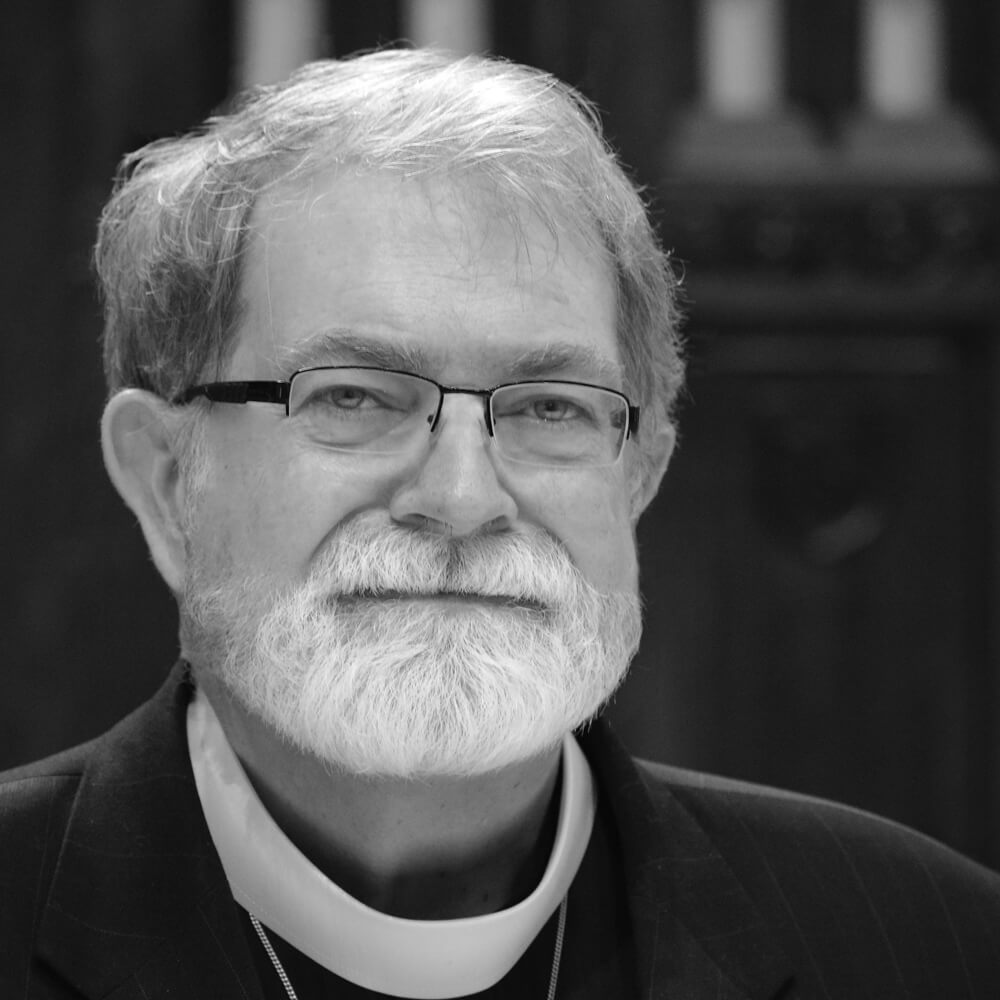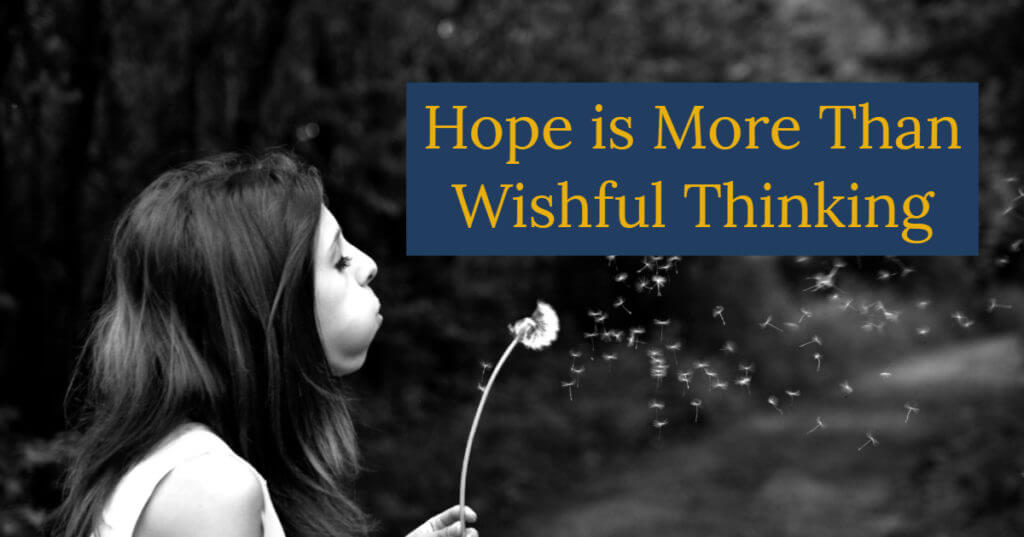For You are my hope; O Lord God, You are my confidence from my youth. (Ps. 71:5)
Back in the 1960’s a singer named Dusty Springfield recorded a song entitled “Wishing and Hoping.” It was about a girl who was wanting a boy, who was ignoring her, to notice and care for her:
Wishin’ and hopin’ and thinkin’ and prayin’
Plannin’ and dreamin’ each night of his charms
That won’t get you into his arms
So if you’re lookin’ to find love you can share
All you gotta do is hold him and kiss him and love him
And show him that you care
This seems to be the way the world thinks about hope: it’s just another word for wishful thinking or dreaming about something. And may I add that this wishful thinking and dreaming may have all the best intentions and sincerity the human heart is capable of mustering.
But this is not what the Bible means by hope.
This week, a group of theologically faithful Anglican bishops issued an open letter about their hopes for the Lambeth Conference of Bishops meeting in 2020, and why bishops should attend. You can read their whole letter here.
Here are some of the hopes they express in this open letter:
“We hope for a Lambeth Conference Built on a Common Faith…”
“We hope for a Lambeth Conference marked by Charity…”
“We hope for a Lambeth that is ordered to prayer and the Bible, that nourishes our humility, that opens us to God’s conversion in the Spirit, and that encourages us to renewed forms of teaching and witness which will inspire and attract younger generations in our nations and our churches…”
“Within the Communion itself, some have felt frustration with the ‘Instruments’ over the past two decades, as they have struggled to balance autonomy and mutual accountability. We hope for a Conference that lays out a path ahead in the next decade, and we pray for the patience to walk it. We hope for a Conference in which we deepen our sense of ‘mutual responsibility and interdependence in the Body of Christ’ (Anglican Congress 1963)…”
But as I have written here and here there is very little evidence to justify these hopes:
- The very definition of the “Communion of Anglican Churches” has been diminished by the very Instruments of Communion to a mere creature of history, sociology and secular values associated with alternative dispute resolution. The proposed Anglican Covenant died in 2012 when it was rejected by the mother Church of England. Therefore, biblically faithful bishops who choose to attend Lambeth 2020 will have no common ground, and no “common faith,” to stand on with regard to the authority of the Holy Scriptures over the Church.
- In their faithfulness, their voice will be treated (somewhat) respectfully by established authorities who do not share their convictions. But based on past experience at such meetings, the faithful bishops who attend Lambeth will be shepherded by Anglican Communion Office “minders” to various huddles and gatherings apart from their fellow Biblically faithful bishops. In past conferences, their comments have been mysteriously omitted from official reports leaving no opportunity for dissent.
- Biblically faithful bishops will also be shepherded to a “photo-op” with the Archbishop of Canterbury and other bishops. If you are a Biblically faithful bishop present at Lambeth 2020, your smiling presence in the conference photograph will be taken as your unconditional public approval of the Archbishop of Canterbury’s violation of Lambeth Resolution 1.10 (1998) by inviting those bishops in same-sex relationships who have been consecrated by The Episcopal Church and Anglican Church of Canada.
- In the end, faithful Bishops can expect the Archbishop of Canterbury and those organizing the 2020 Lambeth Conference to appeal to the secular values of dispute resolution—“good disagreement” and “indaba”—that will continue to result in decisions that promote both a gospel deficit and an ecclesial deficit among the Communion of Anglican Churches
Given these facts and conditions leading up to Lambeth 2020, are the hopes expressed in the open letter merely wishful thinking?
Even the English word “hope” has a much narrower meaning than “wishful thinking.” According to Webster’s Dictionary, hope means “…a confident expectation that a desire will be fulfilled.”
The writers of the Bible use the word hope in this same sense-when they want to convey that someone has a confident expectation of a future blessing of some kind. In the Old Testament, “hope” is a word that means a cord or an attachment, signifying that a person is attached in safety. By the time the book of Job was written, this word included a sense of longing and expectation. When David and Solomon expressed this idea in their writings they included all three concepts of security, desire and waiting.P
- David: “My flesh also shall rest in hope.” (Psalms 16:9)
- Solomon: “The righteous has hope in his death.” (Proverbs 14:32)
But the Bible goes even further than Webster. Whereas the hope defined in Webster is relatively certain, Biblical hope is 100% guaranteed. God is the one who guarantees what we hope for, and since there are no limitations on God, there is no limit on His guarantee for what we hope for. Our hope, therefore, is sure. The psalmist describes this truth so simply in Psalms 71:5: For You are my hope; O Lord God, You are my confidence from my youth.
Likewise, in the New Testament, Paul reminds us in Ephesians 1:3 that every spiritual blessing has already been given. Everything that we can ever hope for (forgiveness, peace, freedom from condemnation and punishment, eternal life, spiritual power and character), all of these and more have already been given to us. This is what the author of the letter to the Hebrews is getting at when he declares in Chapter 11, Verse 1: Now faith is being sure of what we hope for and certain of what we do not see. By faith we accept as true that God has already given us the things we hope for but are unseen for the moment.
God is the foundation, guarantor and provider of all we hope for, so the odds of us receiving what we hope for in Christ are one hundred percent.
How very different a hope than those hopes for Lambeth 2020, which are grounded in listening charitably through an appeal to secular (rather than biblical and conciliar) values of dispute resolution.
On June 27, a journalist named Jeremy Marshall posted his interview with Archbishop Jackson Ole Sapit, the Primate of the Anglican Church of Kenya. Archbishop Ole Sapit had been planning to attend the Lambeth 2020 Conference of Bishops for many of the same hopes expressed in the open letter. But he explained why he has now decided to stay away from Lambeth 2020 and instead will attend the GAFCON Bishops gathering in June 2020 in Kigali Rwanda:
“The new Archbishop first of all genuinely tried to see if agreement on the SSM (same-sex marriage)
issue could be reached within the existing Church of England led Anglican church structures. Sadly, after many meetings he realised that the process was biased from the start: meetings he experienced were deliberately set up to promote a revisionist agenda, rather than a genuine attempt to find a way forward. The whole process, far from being open to discussion, was biased from the start, he reluctantly concluded. Finally, therefore he decided to step away from these discussions and not to attend Lambeth 2020, along of course with other bishops representing most of the majority world Anglican Christians. He made it clear that everyone without exception, is most welcome in the Anglican church in Kenya, but that Christians are taught that we have to repent of our sin (of whatever type) and turn to Christ in obedience. ‘If you love me you will keep my commands’”
Hope…or wishful thinking? Anglican Bishops who are looking for a “path ahead” that will achieve mutual accountability and interdependence in Communion might well consider exchanging their tickets to Canterbury for tickets to Kigali in June 2020.

The Rev. Canon Phil Ashey is President & CEO of the American Anglican Council.


